Re-cooperativising the Co-op Bank? Shaun Fensom of Save Our Bank
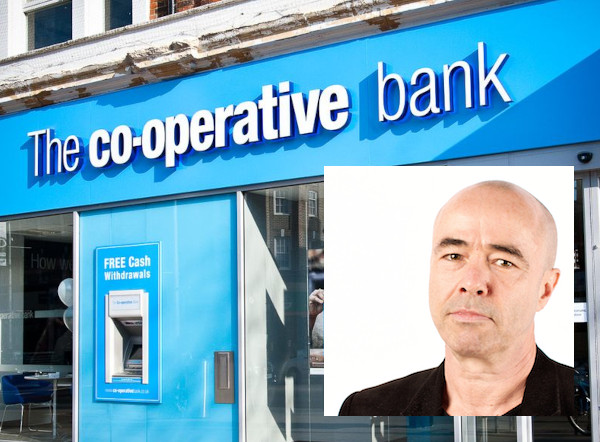
Today I’m talking with Shaun Fensom of ‘Save Our Bank’ – the Co-op Bank, that is. But of course it’s not a co-operative any more, and part of what the group wants to do is to help bring the bank back into co-operative ownership.
Hi Shaun. What is it about the co-operative business model that you like?
It seems to me to be a very rational way to organise. One of the things we’ve seen with the rise of the internet is a new interest in collaboration. For example, some of the smaller businesses that are thriving and growing on the internet. They’re used to the idea of collaboration. They’re interested in getting things done, rather than simply extracting value. They lend themselves easily to co-operative ways of working I think. My favourite example is the internet exchanges. The internet is actually a network of networks rather than one network – and traffic needs to move between networks, and the internet exchanges are very often structured as co-operatives or mutuals. They exchange traffic between networks on the internet, and without them the internet wouldn’t work. So the idea that co-ops are something that belong in the 19th century is wrong. They belong in the 21st century.
Tell me what you mean by extract value. I know what I mean by it, but I meet people with different ideas about it.
We need an economy that’s able to provide the goods that people need to live, and to enjoy happy and fulfilling lives. That should be the aim of the economy – and to distribute them to people in a reasonable way. There has been sometimes a bit of a focus on just simply creating profit as the only aim of businesses. Whereas I think that traditional businesses are more interested in what they can provide to their customers and the employment they can provide for their employees. They see that as part of their mission, and I think that’s a sensible approach. Clearly they need to be able to cover their costs, but too much emphasis on fast returns leads to some of the problems we have today – inequality etc.
And ecological damage (I’m coming from an environmental perspective) – there’s a growth imperative to constantly increase returns.
Indeed. So getting back to the central point. What we want is a set of rules and incentives that protect the planet and that create the goods and services we need. And it does feel that the current set of incentives don’t do that – and the co-operative model has a huge amount to offer there. Still a market – it’s not a centralised system – but it responds better to people’s needs, and there are lots of successful examples of that.
And there’s a democratic aspect to the co-operative model too isn’t there? We have what we call a democratic political system, but the economic system is totally undemocratic.
Yes. And there’s another aspect to the co-operative model, which is that co-ops are neutral vehicles for a group of people or companies to work together without any one of them dominating, in a fair way. The co-op model works well for that.
So tell me more about this Co-op Bank group. What’s it called and how many people are in it?
Most people know us as ‘Save our Bank’ but there’s a formal organisation called the Customer Union for Ethical Banking – itself a co-op. We have around 10k supporters, most of whom are Co-op Bank members. 1200 of those are members of the Customer Union co-op. They pay a small fee – £12 per year, in order to support the work of the union. The campaign has 2 aims, and the union shares those aims.
- To make sure the bank keeps to its ethical principles, which are very strong, and the Co-op Bank has held them longer than any other bank.
- To find some way to bring it back under co-operative control.
It’s probably worth going into a bit of history here.
Yes please.
The Co-op Bank, funnily enough, never was a co-operative. It used to be owned by the Co-operative Group – the biggest of the various big co-ops that run the Co-op shops.
So just to clarify – the Co-op Bank was never a co-op?
That’s right. You could never join it, as in become a member, and get a vote and have a share in it. All you could do was become a customer. Whereas you can join ‘the Co-op’ to this day. You can walk into any store, ask to join – they’ll ask you for a pound, and you’ll get a membership card. There are various societies – the Co-op Group is the biggest one, and owns about 80% of the shops. Your card entitles you to get a discount on your shopping, it can pay you a dividend, and it gives you a vote on how the organisation. It will belong to you – it belongs to its customers.
So the Co-op Bank is called the Co-op Bank because it used to be owned by the Co-operative Group?
100% owned, yes. And they owned stores, Co-operative Insurance and more. It all went rather pear-shaped in 2013. There was a big hole in the Co-op Bank’s balance sheet, following a merger with the Britannia Building Society, which arguably the Labour government at the time encouraged. There were problems with the Britannia’s commercial loan book, and that wasn’t clear until later. It led to a one-and-a-half billion pound hole in the Co-op Bank’s balance sheet, from memory, and you may remember, a couple of things happened. One was that the Co-op Group effectively bailed the bank out, using a method whereby people who bought bonds in the bank ‘bailed it in’ – in other words (and these were people who by this time were largely dominated by American hedge funds) they effectively rescued the bank by putting money into it, and the Co-operative Group went to becoming a minority shareholder.
So the Co-op Group is still a shareholder?
It was at that time – in 2013. That’s when we formed ‘Save Our Bank’. It was also the same time that the chair, Paul Flowers, was involved in a scandal, you may remember – he was caught on video buying illicit drugs, and he had to resign as the chair of the Co-op Bank. So there was a scandal and a big financial hole. So the Co-op Bank was reeling after that. At that point, a lot of their customers left, because it was no longer owned by the Co-op Group, but by hedge funds, and hedge funds don’t have a great reputation for ethical behaviour. The bank protested that they would keep their ethical principles.
Save Our Bank was formed because it was believed that if customers could stick together, we could have some influence over what happens next. Save Our Bank got lots of publicity in the papers and on TV, and a lot of people signed up. That was interesting, because the bank wanted to refresh its ethical policy. It has a customer-led ethical policy, so it wanted to go back to the customers to refresh it. We were worried that if this was handled badly, it could lead to a watering down of the ethical policy. We called very loudly for this not to happen. That was very successful the then chief exec wrote an article in the Guardian promising not to water down the ethical policy.
Which parts of the policy were you concerned about?
Something all the banks were called out on was the mis-selling of personal payment protection insurance – and that’s arguably unethical behaviour. Whereas the Co-op Bank was always very outspoken about things like human rights, disability rights and had divested entirely from carbon. There was no investment at all in fossil fuel extraction. We didn’t want to lose those harder-edged aspects of the ethical policy. Have an ethical approach to your customers – of course. But we wanted to retain the campaigning aspect too, because we felt it had been a real beacon to other banks since 1992. Since it was introduced, the Co-op Bank had been a real leader, so we felt this was worth keeping.
The chief exec said that they were going to review, but not water down. So that means it has to be strengthened – and that’s exactly what happened. The bank announced a new ethical policy, and it was stronger than the previous one. As a result of that we thought that we needed to turn the campaign into something permanent, which is when we came up with the idea of a customer union. We don’t know of any other bank with one, anywhere in the world. It’s like a trade union, but it’s for customers. And it’s a co-op. Some of our supporters were saying that the bank needed more capital. There was a recapitalisation, during which the Co-op Group went down to zero, so now they don’t own any shares. It’s entirely in private hands, except for the few shares held by the customer union. We wanted to be able to have a share in the bank if that’s what our members wanted to do.
So there are two threads to what you wanted to achieve. First to keep the ethical principles – and you seem to have been successful. The second is to bring the bank back into co-operative ownership in some way. How’s that going?
Well that’s hugely ambitious, and a really difficult thing to achieve. Effectively we could crowdfund it – lots of people invest, and we buy the bank back. But the numbers are difficult to make work. No-one has crowdfunded on that scale. It took years for the customer ownership of the co-operative movement to get where it is now. We still believe it can play a role, but it will be hard. It’s not just hedge funds that own the bank. It’s about one third owned by individuals, via bonds I believe, which will become equity. Also, some mainstream investment funds are there too. But we think that the hedge funds completely get what we’re trying to do – they understand the value of the Co-op Bank is in its ethical policy and unique brand. If they undermine that, they undermine their own share value. So we have a shared interest. They’re going to want to exit at some stage – that’s what hedge funds do. And we think that when they exit, there might be an opportunity for other co-operative institutions to come in and take a share in the bank.
Any chance that the Co-op Group could buy it again?
They could, but I don’t think they will. I think they’ve had enough. They’ve been doing well with their shops, and so I think they’ll continue to focus on that.
I was talking with a Co-op Bank customer recently who didn’t know they weren’t a co-op. So how can they call themselves the Co-op Bank if they’re not a co-op?
As well as sticking to the ethical policy, they also support the co-operative movement in various ways. They offer free banking to co-ops, and also they have put significant amounts of money into a project called the Hive, which supports co-operative development.
So although it’s been taken over by hedge funds, it’s still not like other banks?
Again, the value in the bank is in its ethical appeal – lose the name and people would lose trust I think. There are many people in the co-op movement who say that it shouldn’t be allowed to call itself the Co-operative Bank, but I’d say that any chance of returning it to the co-operative movement would disappear if it loses the name.
I guess there is another co-operative bank in the UK – the Nationwide. It’s a mutual, it operates like a bank. I’m a member – I’ve got a card. I can use it just like a bank.
I think a lot of Co-op Bank customers went to the Nationwide. But the bank’s been clawing its way back, and has been adding customers recently. I think one of the interesting things is that a key part of their strategy is to offer services to small businesses, many of whom are really interested in banking with an ethical bank. A lot of small, modern businesses care about ethics, and good for them. It’s right that there’s a bank focusing on that.
What can people do to help? Are you looking for more supporters and members?
Absolutely. If you’re a member of the Co-op Bank, do sign up, either as a supporter, or you can become a member of the customer union – so go to saveourbank.coop and you can join the customer union for £12 per year. We signed a recognition agreement with the bank, much as you’d have with a trade union. We meet with the bank regularly; we’ve agreed that we’ll warn them if we’re going to criticise them, and they warn us if they’re going to do something we might be concerned about. So that’s a very grown-up relationship we have with the bank.
In a post-covid world, where there’s not going to be much money sloshing about, do you think the Co-op Bank might be interested in mutual credit – offering their members a moneyless payment system?
It’s possible. I think in order to succeed, financial institutions need to be evolving their business models, and there’s a lot of new tech. Tech and the internet make things possible around money that weren’t possible before. Mutual credit was always possible, but the use of tech makes it work in a way that’s quick and easy. And there are many other fintech examples – and the progressive banks, the ones moving forward, are engaging with them. I fully expect the Co-op Bank to do the same. That could include mutual credit, I don’t know.
Have you mentioned it to them?
I’ve suggested that it’s an interesting model. A trusted brand like the Co-op Bank could play a role in that I think.
If a genie offered you one wish, what would it be?
In this context, or any?
This context, and the wider context.
Well, in terms of us doing what we set out to do, I’d like to see the bank come back into majority co-operative ownership – owned by its customers and its employees, having some influence over how the bank operates. But we have a constructive relationship that we already have some influence. Arguably, that’s a fundamental part of being a co-operative – that your members have influence. So the more of us there are, the more we can influence the bank. And I think the bank values that – why wouldn’t you want to listen to a group of committed customers.
And for the other genie wish – same as everybody else really – world peace, a solution to the climate crisis, that sort of thing.
What do you think is most likely – getting the Co-op Bank back into co-operative ownership, or solving the climate crisis?
Oh, I’m sure we’ll do both.
Ah, OK. Well that’s cheered me up a bit. Thanks a lot Shaun.
Highlights
- The co-operative model has a huge amount to offer. Still a market – it’s not a centralised system – but it responds better to people’s needs, they’re neutral vehicles for a group of people or companies to work together without any one of them dominating, and there are lots of successful examples.
- We have around 10k supporters, most of whom are Co-op Bank members. 1200 of those are members of the Customer Union co-op; we have 2 aims – to make sure the bank keeps to its ethical principles; and to find some way to bring it back under co-operative control.
- If you’re a member of the Co-op Bank, do sign up, either as a supporter, or you can become a member of the customer union – go to saveourbank.coop.
The views expressed in our blog are those of the author and not necessarily lowimpact.org's




 The global money system: not the kind of ‘normality’ we should return to after the coronavirus crisis is over
The global money system: not the kind of ‘normality’ we should return to after the coronavirus crisis is over
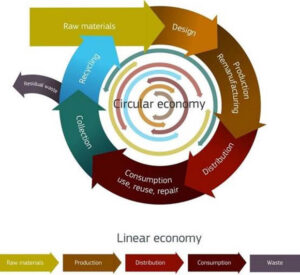 The Money and Society MOOC — and my subsequent adventures in mutual credit
The Money and Society MOOC — and my subsequent adventures in mutual credit
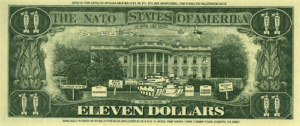 New money stories: the eleven dollar bill
New money stories: the eleven dollar bill
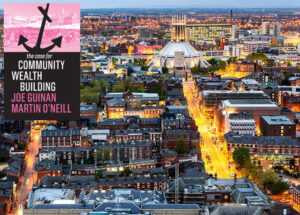 ‘The Case for Community Wealth Building’: review
‘The Case for Community Wealth Building’: review
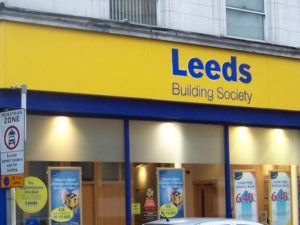 Building societies
Building societies
 Co-operatives
Co-operatives
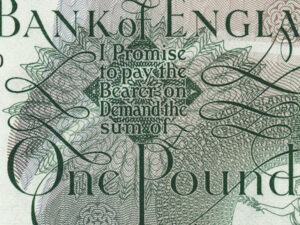 Low-impact money
Low-impact money
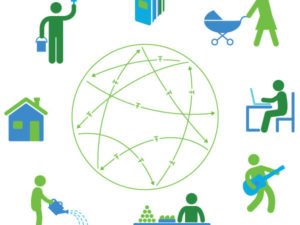 Mutual credit
Mutual credit
 Commons economy
Commons economy


